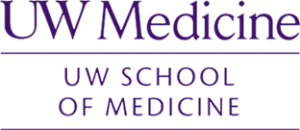Clinical Translational Research Pathway at the UW School of Medicine
Overview
The Clinical and Translational Research (CTR) pathway is intended for UW School of Medicine (UWSOM) medical students who wish to learn about and explore the process of creating new knowledge in the form of clinical and/or translational research. The CTR pathway is intended to introduce students to the key components and framework of designing, conducting and presenting a clinical or translational research project. The pathway consists of an elective course series taken during Foundations, participation in the Independent Investigative Inquiry (III) Discovery option, and several additional requirements during the clerkship phases. The elective courses are built around the book “Designing Clinical Research” by Browner, et. al., as well as training materials created by the UW Institute for Translational Health Science (ITHS). Students who successfully complete all CTR pathway requirements receive a Certificate in Clinical and Translational Research from ITHS.
The CTR pathway has been approved as a pilot for the E-23 and E-24 classes and is open to MS1 students from all Foundations sites. Please note that as a pilot, this pathway is subject to change. To apply to the CTR pathway, submit this form.





